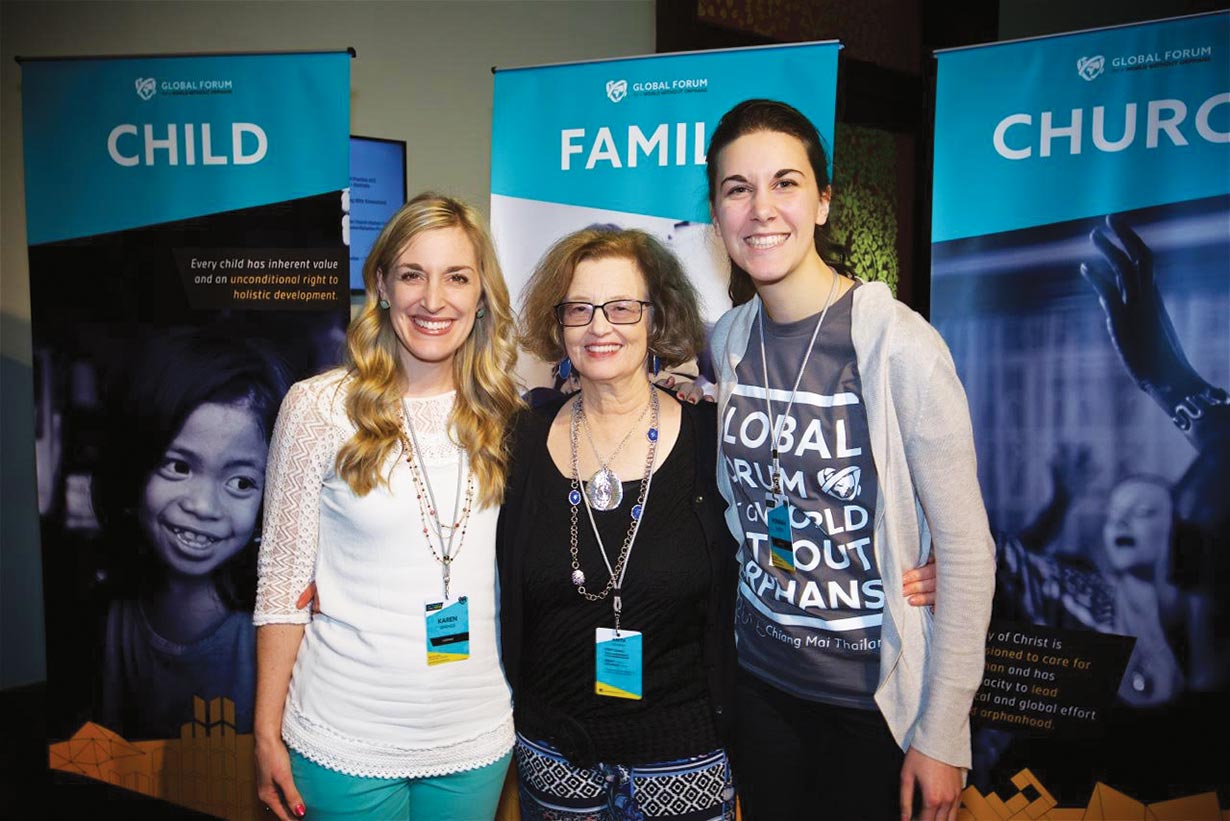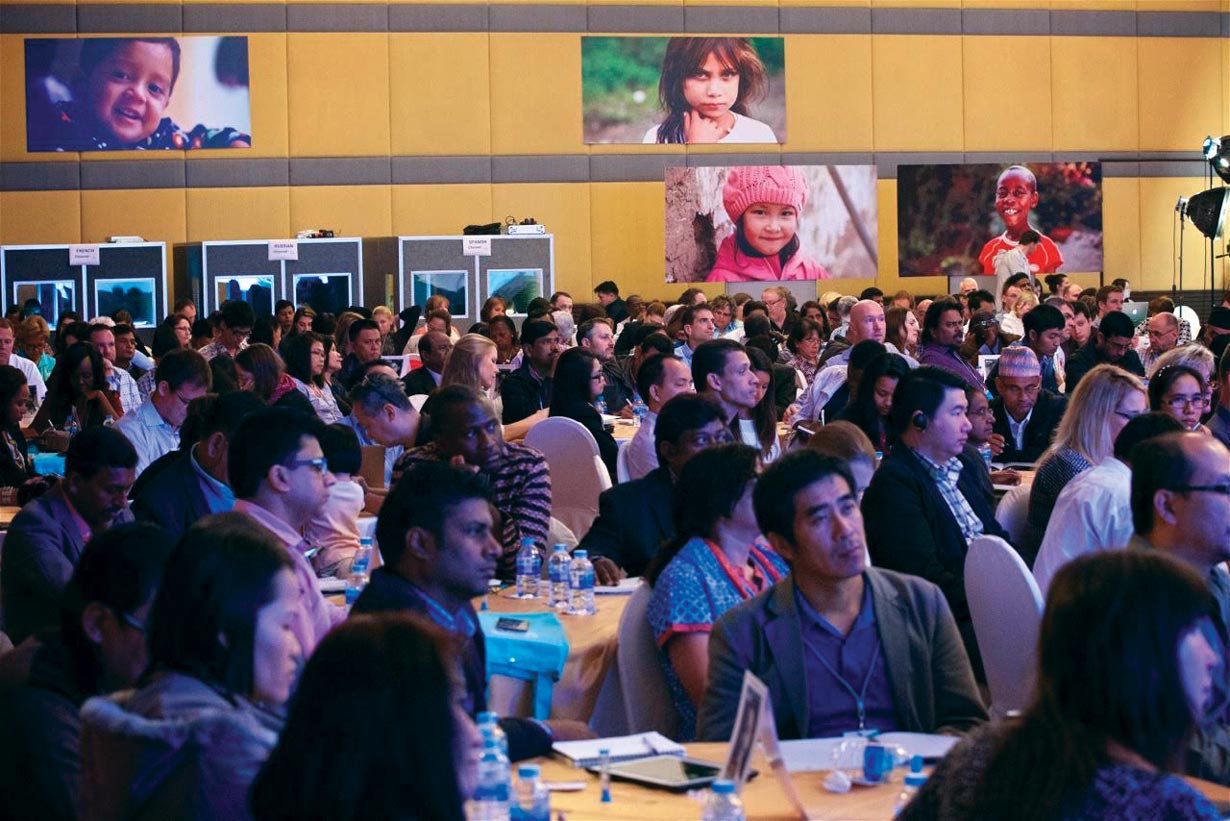The World Acting Globally
Beyond the Orphanage
Alumni advocate for family care at global conference
By Ruth Moon | Photos courtsey of Ronnie Mosley
 Above, left to right: Karen Springs, Anita Deyneka, and Honnah Weber at the Global Forum for a World Without Orphans.
Above, left to right: Karen Springs, Anita Deyneka, and Honnah Weber at the Global Forum for a World Without Orphans.
In many countries, children considered orphans still have one living parent. But children are often sent to orphanages or adopted internationally because the parents are poor and think the children will have a better life with that institutional support.
In Armenia and Georgia, for instance, where Seattle Pacific alumna Karen Springs ’04 works with the nonprofit Orphan’s Promise, locals often tell her they can’t or won’t adopt children because there is too much complicated bureaucracy.
“People have the apathetic idea that ‘this is the way our country is — it’s never going to change,’” she says. Springs hopes that the Global Forum for a World Without Orphans she and other SPU alumni helped to organize this February in Chiang Mai, Thailand will convince communities to look to local churches and networks to support families and eradicate the status of orphan.
Recent research sponsored by Save the Children suggests that children in families, even poor families, grow into more stable adults than their counterparts in orphanages or foster care. However, orphanages, often supported by Western Christians, are common sights around India and other countries, Springs says.
Adoption, while a better option than orphanages or foster care, is expensive and difficult, especially across international borders. U.S. international adoptions — which outnumber the rest of the world combined — have dropped by more than half in the last two decades. Only 6,441 children were adopted to the U.S. in 2014, accounting for a fraction of 1 percent of the more than 150 million orphans that UNICEF estimates exist. Besides, the process is expensive. The median cost of an international adoption to the U.S. in 2014 was about $30,000, according to the U.S. Department of State.
“The current system of caring for the parentless and orphan is broken. It’s time for a change,” says Anita Deyneka ’66, who is emeritus director at Mission Eurasia and on the steering committee for the World Without Orphans forum. “Children and orphans don’t have to primarily be raised in institutions. There are enough churches to support these kids.”
It might sound like an easy fix, but orphans don’t have many spokespeople advocating to change their situation. Events like the Global Forum for a World Without Orphans are especially important because they help create a unified global presence standing up for orphans, says Richard Scheuerman, associate professor of curriculum and instruction in Seattle Pacific's School of Education. Scheuerman is on the board of Home for Every Orphan, an organization involved with the World Without Orphans movement.
“We have many biblical injunctions about taking care of orphans and widows, and Jesus not wanting the disciples to restrain children from coming to him. We just have all kinds of constraints these days built in to geography and institutions,” he says. “I would consider this population the most vulnerable of all.”
Deyneka, Springs, Honnah Weber ’13, and other Seattle Pacific alumni convened the World Without Orphans Forum, over Valentine’s Day weekend to encourage orphan care organizations to focus on local churches and communities so that fewer children become orphans in the first place. About 450 people from 60 countries attended the forum, where speakers highlighted stories of orphans and encouraged church leaders to support local families and local adoption.
“We need to be thinking of ways to strengthen families and provide them with solutions that do not involve them taking their children to orphanages,” Weber says. “It’s a big dream, but after being at this forum, I am filled with hope and excitement that if the church will waken to this call, this literally can happen within our lifetime to see a world without orphans.”
 Attendees gathered for worship and learning.
Attendees gathered for worship and learning.
